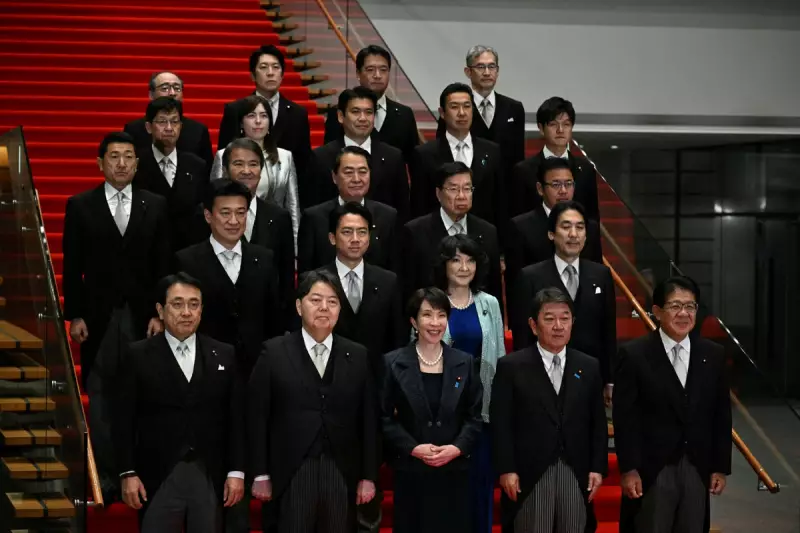
In a move that has raised eyebrows across the political spectrum, Japanese Prime Minister Fumio Kishida has appointed just one woman to his newly reshuffled cabinet, despite previous pledges to improve gender diversity in government.
Sanae Takaichi, a prominent conservative figure within the ruling Liberal Democratic Party, has been named as the Minister for Economic Security - making her the sole female voice around the cabinet table.
A Step Backwards for Gender Representation
The appointment marks a significant reduction in female representation compared to Kishida's previous administration, which contained two women ministers. This comes at a time when Japan continues to struggle with its international reputation regarding gender equality in politics.
Japan consistently ranks among the lowest of developed nations for female political representation. According to recent data, women hold just about 10% of seats in the lower house of parliament - a figure that places Japan at 165th out of 190 countries worldwide.
Mixed Reactions to Takaichi's Appointment
Ms Takaichi, who previously served as Minister for Internal Affairs, is known for her hawkish views on defence and constitutional reform. Her appointment to the economic security portfolio signals the government's continued focus on strengthening Japan's economic resilience amid growing geopolitical tensions.
However, women's rights advocates have expressed disappointment at the lack of broader female representation. "Having just one woman in cabinet sends the wrong message about Japan's commitment to gender equality," said Yuki Saito, director of the Japanese Association for Gender Equality in Politics.
International Comparisons Highlight the Gap
The situation stands in stark contrast to other G7 nations, where female representation in cabinet positions typically ranges between 30-50%. Even within Asia, countries like Taiwan and New Zealand have demonstrated stronger commitments to gender-balanced governance.
Prime Minister Kishida has previously spoken about creating a society where "women can shine," but critics argue this latest cabinet composition undermines those aspirations. The government maintains that appointments are based on merit and experience rather than gender quotas.
As Japan continues to grapple with demographic challenges and labour shortages, many experts argue that greater female participation in leadership roles is not just a matter of equality, but economic necessity.





